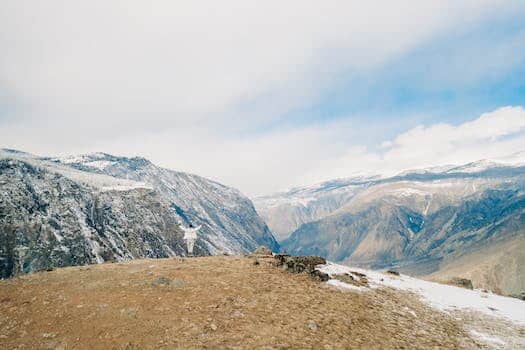When it comes to exploring new horizons and experiencing the wonders of the world, two terms often come to mind: adventure and travel. While they may seem interchangeable at first glance, there are distinct differences between the two. Adventure is all about embracing uncertainty, seeking thrilling experiences, and stepping out of your comfort zone, while travel encompasses the act of journeying to different places, discovering new cultures, and expanding one’s perspective. In this article, we will delve deeper into the dissimilarities between adventure and travel, shedding light on the unique aspects that define each of these exhilarating pursuits.
- 1. Heading 1
- 1.1. Subheading 1
- 1.2. Subheading 2
- 1.3. Subheading 3
- 1.4. Subheading 4
- 1.5. Subheading 5
- 2. Heading 2
- 2.1. Subheading 1
- 2.2. Subheading 2
- 2.3. Subheading 3
- 2.4. Subheading 4
- 2.5. Subheading 5
- 3. Heading 3
- 3.1. Subheading 1
- 3.2. Subheading 2
- 3.3. Subheading 3
- 3.4. Subheading 4
- 3.5. Subheading 5
1. Heading 1
Adventure and travel are often used interchangeably, but they have distinct differences. While both involve exploring new places and experiencing new things, the key distinction lies in the purpose and mindset behind them.
Adventure is all about seeking excitement, taking risks, and pushing one’s limits. It involves engaging in thrilling activities such as hiking, rock climbing, skydiving, or even exploring uncharted territories. The focus is on adrenaline rush, novelty, and stepping out of one’s comfort zone.
On the other hand, travel is more about immersing oneself in different cultures, traditions, and environments. It involves visiting new destinations, meeting new people, and experiencing the local way of life. Traveling often includes activities like sightseeing, trying local cuisines, and engaging in cultural exchanges.
While adventure can be a part of travel, not all travel experiences are adventurous. Adventure tends to be more physically demanding and requires a certain level of courage and risk-taking. Travel, on the other hand, can be both adventurous and leisurely, depending on one’s preferences.
In conclusion, adventure and travel are two sides of the same coin. Adventure focuses on thrill-seeking and stepping out of comfort zones, while travel encompasses a broader spectrum of experiences, including cultural immersion and exploration. Whether one seeks adrenaline-pumping adventures or seeks to soak in the beauty of different cultures, both adventure and travel offer unique opportunities for personal growth and discovery.
1.1. Subheading 1
Adventure and travel are often used interchangeably, but they have distinct differences. While both involve exploring new places and experiencing new things, the mindset and purpose behind each are unique.
Adventure is about pushing boundaries and seeking thrills. It involves taking risks and stepping out of your comfort zone. Whether it’s climbing a mountain, skydiving, or exploring uncharted territories, adventure is all about seeking excitement and adrenaline rushes.
On the other hand, travel is more focused on the journey itself and the cultural experiences. It involves immersing yourself in different cultures, trying new cuisines, and discovering the history and traditions of a place. Travel is often about personal growth, broadening your horizons, and gaining a deeper understanding of the world.
In summary, adventure is about seeking thrills and pushing boundaries, while travel is about exploring new cultures and gaining knowledge. Both can be incredibly fulfilling, but they cater to different desires and motivations.
1.2. Subheading 2
Adventure and travel are often used interchangeably, but they have distinct differences. While both involve exploring new places and experiencing new things, the motivations and outcomes of each can vary significantly.
Adventure is characterized by a sense of thrill, risk, and pushing one’s limits. It often involves engaging in activities that are physically or mentally demanding, such as mountain climbing, skydiving, or scuba diving. The focus is on seeking adrenaline rushes, facing challenges, and stepping out of one’s comfort zone.
On the other hand, travel is more about discovering and immersing oneself in different cultures, landscapes, and histories. It encompasses a wider range of experiences, including visiting famous landmarks, trying local cuisines, and interacting with locals. The emphasis is on learning, broadening horizons, and gaining a deeper understanding of the world.
While adventure can be a part of travel, it is not synonymous with it. Adventure travel combines elements of both by offering exciting and unconventional experiences in unique destinations. It caters to those seeking a blend of thrill and exploration.
In summary, adventure and travel are distinct concepts. Adventure focuses on adrenaline-inducing activities and pushing boundaries, whereas travel is about cultural immersion and discovery. However, adventure travel bridges the gap between the two, providing an opportunity to experience both the thrill of adventure and the enrichment of travel.
1.3. Subheading 3
Adventure and travel are often used interchangeably, but they actually have distinct differences. While both involve exploring new places and experiencing new things, the key distinction lies in the mindset and purpose behind each. Adventure is characterized by a sense of thrill, risk-taking, and pushing one’s limits. It often involves engaging in adrenaline-pumping activities such as skydiving, bungee jumping, or mountain climbing. On the other hand, travel is more focused on leisurely exploration, cultural immersion, and relaxation. It typically involves visiting tourist attractions, trying local cuisine, and learning about different customs and traditions. While adventure can be a part of travel, not all travel experiences are adventurous. Understanding the difference between adventure and travel can help travelers choose the type of experience that aligns with their preferences and expectations.
1.4. Subheading 4
Adventure and travel may seem similar, but they have distinct differences. While both involve exploring new places and experiencing different cultures, adventure focuses more on thrilling and exciting activities, while travel encompasses a broader range of experiences. Let’s delve deeper into the disparities between adventure and travel.
1.5. Subheading 5
Adventure and travel are two terms that are often used interchangeably, but they have distinct differences. While both involve exploring and experiencing new places, there are key factors that set them apart. Understanding these differences can help you choose the type of experience that aligns with your preferences and goals.
Adventure is all about pushing boundaries and seeking thrilling experiences. It involves taking risks, stepping out of your comfort zone, and embracing the unknown. Adventure seekers often engage in activities such as hiking, rock climbing, skydiving, or extreme sports. The adrenaline rush and the sense of accomplishment from conquering challenges are what drive adventurers.
On the other hand, travel is more focused on cultural immersion, relaxation, and exploration. It involves visiting new destinations, interacting with locals, and experiencing different traditions and lifestyles. Travelers often seek to broaden their horizons, learn about different cultures, and create lasting memories through meaningful experiences.
While adventure can be a part of travel, it is not the sole focus. Travel allows for a deeper understanding of the world and its diverse cultures, whereas adventure is more about personal growth and testing one’s limits. Both adventure and travel offer unique opportunities for self-discovery, but they cater to different preferences and motivations.
In conclusion, adventure and travel are distinct concepts that offer different experiences. Whether you prefer the thrill of pushing boundaries or the immersion in new cultures, understanding the difference can help you plan your next journey accordingly.
2. Heading 2
Adventure and travel are often used interchangeably, but they are actually two distinct concepts. While both involve exploring new places and experiencing different cultures, there are some key differences between the two.
Adventure typically refers to activities that are thrilling, daring, and often involve some level of physical risk. It is about pushing one’s limits and seeking adrenaline-pumping experiences. Examples of adventure activities include skydiving, bungee jumping, rock climbing, and white-water rafting. Adventure enthusiasts are constantly seeking new challenges and are willing to step out of their comfort zones.
On the other hand, travel is a broader term that encompasses various types of journeys. It can involve leisurely vacations, educational trips, cultural exchanges, or even business travel. Travel is more focused on the overall experience of visiting different places, immersing oneself in different environments, and learning about different cultures and traditions. It can be a way to relax, rejuvenate, or gain new perspectives.
While adventure and travel can overlap, not all travel experiences are adventurous, and not all adventures involve extensive travel. One can have an adventurous experience without traveling far from home, such as trying a new extreme sport in their own city. Similarly, one can travel to a new destination and have a calm and peaceful vacation without engaging in any adventurous activities.
In conclusion, adventure and travel are two distinct concepts, each offering unique experiences. Adventure is about seeking thrills and pushing boundaries, while travel is more about exploring and immersing oneself in different cultures. Whether one prefers adventure, travel, or a combination of both, they provide opportunities for personal growth, learning, and memorable experiences.
2.1. Subheading 1
Adventure and travel are two terms often used interchangeably, but they have distinct differences. While both involve exploring new places and experiencing different cultures, the mindset and purpose behind each are unique.
Adventure is characterized by its thrill and excitement. It often involves taking risks and stepping out of one’s comfort zone. It can include activities such as hiking in remote mountains, skydiving, or exploring uncharted territories. The focus of adventure is on pushing boundaries, seeking adrenaline rushes, and embracing the unknown.
On the other hand, travel is more about the journey itself. It encompasses the act of moving from one place to another, usually with the intention of experiencing new destinations. Travel can involve leisurely activities like sightseeing, immersing oneself in local traditions, or simply relaxing on a beach. The essence of travel lies in discovering new cultures, meeting new people, and broadening one’s perspective.
While adventure often requires a certain level of physical exertion and risk-taking, travel can be more accessible and inclusive to a wider range of individuals. Adventure seekers are typically driven by the desire for thrills and challenges, while travelers seek personal growth, cultural enrichment, and a break from their daily routines.
In conclusion, adventure and travel are both exciting ways to explore the world, but they differ in their mindset and purpose. Whether one prefers the adrenaline-fueled experiences of adventure or the leisurely exploration of travel, both can provide unique and enriching experiences for individuals seeking to expand their horizons.
2.2. Subheading 2
Adventure and travel are two terms that are often used interchangeably, but they actually have distinct meanings and experiences. While both involve exploring new places and having unique experiences, there are key differences that set them apart.
Travel typically refers to the act of going to different locations, whether it is within one’s own country or abroad. It often involves visiting popular tourist destinations, exploring historical sites, and immersing oneself in the local culture. Travelers usually have a planned itinerary, and their focus is on discovering new places, trying local cuisines, and experiencing the beauty of different landscapes.
On the other hand, adventure is more about the thrill and excitement of engaging in daring activities and pushing one’s limits. It involves taking risks, seeking adrenaline-pumping experiences, and stepping out of one’s comfort zone. Adventure enthusiasts often seek out activities such as hiking, rock climbing, skydiving, or participating in extreme sports. The emphasis is on embracing challenges, overcoming fears, and gaining a sense of accomplishment.
While travel can be adventurous to some extent, not all adventures necessarily involve travel. Adventure can be found in everyday activities or within one’s own city. It is a mindset that encourages exploration, curiosity, and a willingness to try new things. Travel, on the other hand, can be less physically demanding and more focused on relaxation, sightseeing, and cultural immersion.
In summary, travel involves visiting new places and immersing oneself in different cultures, while adventure revolves around seeking thrilling experiences and pushing personal boundaries. Both offer unique opportunities for personal growth and discovery, but they cater to different preferences and motivations.
2.3. Subheading 3
Adventure and travel are often used interchangeably, but they are not the same thing. While both involve exploring new places and experiencing different cultures, there are distinct differences between the two.
Adventure is all about seeking thrilling and adrenaline-pumping activities. It involves pushing oneself out of the comfort zone and taking risks. Activities like skydiving, bungee jumping, and rock climbing are often associated with adventure. The focus is on the excitement and the sense of accomplishment that comes from overcoming challenges.
On the other hand, travel is more about immersing oneself in new environments and gaining a deeper understanding of different cultures. It often involves visiting historical sites, trying local cuisine, and interacting with locals. Travel allows individuals to broaden their horizons, learn about different traditions, and appreciate the diversity of the world.
While adventure can be a part of travel, not all travel experiences are adventurous. Some people prefer a more relaxed and leisurely exploration, focusing on sightseeing and cultural experiences rather than adrenaline-fueled activities.
In conclusion, adventure and travel may intersect at times, but they are distinct concepts. Adventure is about seeking thrills and taking risks, while travel is about immersing oneself in new cultures and environments. Both can be enriching and fulfilling in their own ways, catering to different interests and preferences.
2.4. Subheading 4
Adventure and travel may seem similar at first glance, but they have distinct differences. While travel typically refers to visiting new places and experiencing different cultures, adventure involves taking risks and seeking thrilling experiences. Travel is often associated with relaxation and leisure, while adventure is more focused on pushing personal boundaries and seeking adrenaline-inducing activities. Whether it’s hiking through remote mountains, skydiving from great heights, or exploring uncharted territories, adventure offers a sense of excitement and novelty that travel alone may not provide. However, both adventure and travel can be incredibly rewarding, and they often go hand in hand. Many travelers seek out adventurous experiences during their journeys, combining the best of both worlds. Ultimately, the difference between adventure and travel lies in the mindset and intention of the individual, with adventure emphasizing the thrill of the unknown and travel focusing on cultural immersion and exploration.
2.5. Subheading 5
Adventure and travel are often used interchangeably, but they are not the same. While both involve exploring new places and experiencing new things, there are distinct differences between the two.
Adventure is associated with excitement, risk, and adrenaline. It involves engaging in thrilling activities such as skydiving, bungee jumping, or rock climbing. Adventure seekers are drawn to the thrill of pushing their limits and stepping out of their comfort zones. They seek out experiences that provide an adrenaline rush and a sense of accomplishment.
On the other hand, travel is more about discovering new cultures, immersing oneself in different environments, and gaining a broader perspective of the world. It involves visiting iconic landmarks, trying local cuisines, and interacting with people from different backgrounds. Travelers are interested in learning about different traditions, history, and ways of life.
While adventure can be a part of travel, it is not the sole focus. Travel encompasses a wider range of experiences, including leisurely exploration, relaxation, and cultural enrichment. Adventure, on the other hand, is centered around high-energy activities that provide a sense of thrill and excitement.
In conclusion, adventure and travel are related but distinct concepts. They offer different experiences and cater to different preferences. Whether one seeks the adrenaline rush of adventure or the cultural immersion of travel, both can provide enriching and memorable experiences.
3. Heading 3
Adventure and travel are often used interchangeably, but they have distinct differences. While both involve exploring new places and experiencing new things, adventure focuses more on thrilling and adrenaline-pumping activities, whereas travel encompasses a broader range of experiences. Adventure often involves activities such as hiking, rock climbing, bungee jumping, or skydiving, where the element of risk and excitement is paramount. On the other hand, travel can include activities like sightseeing, visiting historical landmarks, trying local cuisines, or immersing oneself in different cultures. While adventure may be a part of travel, not all travel experiences are adventurous. It is important to understand the difference between the two to plan and choose the type of experience that suits one’s preferences and interests.
3.1. Subheading 1
Adventure and travel are two distinct concepts that often overlap in the realm of exploration and discovery. While both involve venturing into unfamiliar territory, there are key differences that set them apart.
Adventure can be defined as an exciting or daring experience that typically involves some level of risk. It is about pushing boundaries, seeking adrenaline rushes, and embracing the unknown. Adventure enthusiasts thrive on challenges and are constantly seeking new and thrilling experiences. Whether it’s scaling a treacherous mountain peak, skydiving from a plane, or navigating through dense jungles, adventure is all about stepping out of one’s comfort zone and embracing the thrill of uncertainty.
On the other hand, travel is a broader term that encompasses various forms of exploration and leisure. It refers to the act of journeying to different places, both near and far, with the purpose of discovering new cultures, landscapes, and experiences. Travel can involve visiting tourist destinations, immersing oneself in local traditions, or simply exploring the beauty of nature. Unlike adventure, travel is not necessarily focused on taking risks or seeking adrenaline-pumping activities. It can be a more relaxed and introspective experience, allowing individuals to broaden their horizons and gain new perspectives.
In summary, adventure and travel may often go hand in hand, but they have distinct characteristics. Adventure is more about pushing limits, embracing risks, and seeking thrilling experiences, while travel is a broader concept that encompasses the exploration of different places and cultures. Whether one seeks the adrenaline rush of adventure or the cultural enrichment of travel, both offer unique opportunities for personal growth and discovery.
3.2. Subheading 2
Adventure and travel may seem similar, but they offer different experiences and perspectives. While travel usually refers to visiting new places and experiencing different cultures, adventure involves engaging in thrilling and daring activities. Travel often focuses on relaxation and exploration, allowing individuals to immerse themselves in new environments and engage with local customs. On the other hand, adventure is all about pushing boundaries and seeking adrenaline rushes. It includes activities such as hiking, rock climbing, skydiving, and other extreme sports. While both travel and adventure can be exciting and fulfilling, they cater to different preferences and personalities. Some people prefer the tranquility of travel, while others thrive on the thrill of adventure. Ultimately, the choice between adventure and travel depends on one’s interests, goals, and comfort level with uncertainty.
3.3. Subheading 3
Adventure and travel may seem similar, but they have distinct differences. While both involve exploring new places and experiencing different cultures, the main contrast lies in the approach and purpose. Travel is often associated with relaxation, sightseeing, and leisure. It focuses on visiting popular tourist destinations, trying local cuisines, and immersing oneself in the beauty of a particular location. On the other hand, adventure is more about seeking thrill, excitement, and pushing one’s boundaries. It involves engaging in adrenaline-pumping activities like hiking, rock climbing, or skydiving. Adventure travelers are not content with just observing; they actively participate in challenging activities to feel the rush and conquer fears. Although travel can be adventurous and adventure can include travel, they offer unique perspectives and cater to different preferences.
3.4. Subheading 4
Adventure and travel may seem similar, but they have distinctive characteristics that set them apart. While both involve exploring new places and experiencing different cultures, they differ in terms of purpose and mindset.
Adventure is all about seeking thrilling and daring experiences. It often involves taking risks and stepping out of one’s comfort zone. Whether it’s climbing a mountain, skydiving, or exploring uncharted territories, adventure pushes individuals to their limits. It is driven by the desire for adrenaline rushes and the excitement of the unknown.
On the other hand, travel focuses more on leisure, relaxation, and cultural immersion. It involves visiting popular tourist destinations, engaging with locals, and learning about their customs and traditions. Travelers seek to broaden their perspectives, gain new insights, and create memories. It is a way to unwind, rejuvenate, and appreciate the beauty of different places.
In summary, adventure is about seeking thrills and pushing boundaries, while travel is about exploration, cultural understanding, and personal growth.
3.5. Subheading 5
Adventure and travel may seem similar, but they have distinct differences. While both involve exploring new places and experiencing new things, the mindset and purpose behind each activity set them apart. Adventure is all about pushing boundaries, taking risks, and seeking out thrilling experiences. It often involves activities like mountain climbing, skydiving, or bungee jumping. On the other hand, travel is more focused on discovering different cultures, immersing oneself in new environments, and gaining a broader perspective of the world. It includes activities like visiting historical sites, trying local cuisine, or interacting with locals. While adventure seekers may crave adrenaline and excitement, travelers often seek knowledge, understanding, and personal growth. Understanding the difference between adventure and travel can help individuals determine their preferences and plan their journeys accordingly.
Conclusion
In conclusion, while both adventure and travel involve exploring new places and experiences, they differ in their overall purpose and mindset. Adventure is more focused on seeking thrilling and challenging activities, whereas travel is about discovering new cultures and broadening one’s horizons. Both are valuable and can offer unique benefits to individuals seeking to expand their perspectives and create lasting memories.





